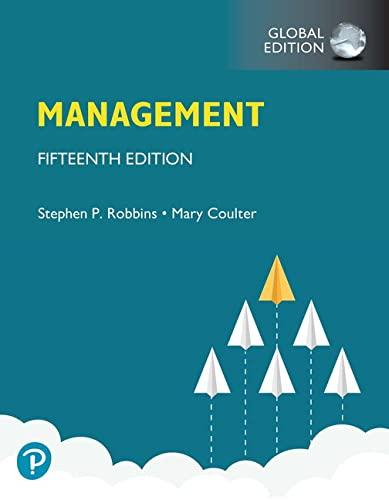The 2019 Womens FIFA World Cup saw viewer ratings soar with over 750 million viewers across the
Question:
The 2019 Women’s FIFA World Cup saw viewer ratings soar with over 750 million viewers across the world; a 20 percent increase on the men’s World Cup in 2018. The coverage of the games have inspired a new generation of girls to get involved in football, a sport that historically has been dominated by men. The launch of the #WhatIf campaign in 2018 in the UK is driving forward a campaign to get more women and girls into the football industry. Founder Anna Kessel wants to create more equal opportunities for women from the football field to the boardroom. However, it is recognized that there has been much talk of equality in recent years and yet criticism that change is not happening fast enough.
Despite the growing recognition, female footballers are still paid significantly less than their male counterparts. The Global Sports Salaries Survey 2018 reported the average wage of the UK Premier League player at £2.64 million per year, while in the Football Association (FA) Women’s Super League it is £27,271. And it’s not just the players. With 20 premiership football clubs in England, only 6 percent of executive directors are female. But with the demand for change getting louder, there is one trailblazer that has demonstrated that it can become a reality.
In East Sussex, England, there is a small town called Lewes. With a population of approximately 17,000 people, the residents are proud of their community-based, nonprofit local football club, Lewes Football Club (FC). And they have good reason to be.
In 2017, Lewes FC launched a campaign called Equality FC and became the first football club in the world to pay its women footballers as much as the men. In fact, the highest earner plays for the women’s team. Although the level of pay is of no comparison to Premier League players (the average pay at Lewes is £100–£250 per week), the club is sending out a message of equality that is making its peers sit up and pay attention.
In the boardroom, Lewes FC has demonstrated its commitment to equality through appointing two female directors to the club in early 2019, Michelle Bowie Krige and Karen Dobres. The responsibilities of the directors include promoting the club’s ethos nationally and driving forward equality initiatives. Most recently, Maggie Murphy has also joined Lewes FC as a general manager for the women’s team.
Positions are not ring-fenced for women only, however the club recognizes that having a more balanced senior management team brings a variety of leadership traits, approaches and new ideas that may not exist otherwise.
To ensure that inclusivity takes a holistic approach, Lewes FC have not only closed the pay gap, but have also addressed the resources available for both genders.
Playing budgets for female and male teams are set equally, as is access to strength and conditioning staff, coaches, and ensuring high standards of equipment and facilities.
Karen Dobres recognizes that closing the gender pay gap in an industry such as this would likely be unaffordable to most of the major clubs. However, she also states that there are steps that can be taken. Giving players equal access to clear pathways of advancement in clubs, access to facilities and resources are all important steps in promoting equity in sports.
The world is waiting to see what the rise in female football will bring for the 2023 World Cup. From office staff to the boardroom, commentators, players and officials, it is clear to see that women have a lot of ideas, knowledge and skills to bring to the industry.
The issue of pay may be a challenging one, but one that can surely be achieved.
Females within the sector will be hoping that the bigger clubs are listening, and the playing field will soon start to level out.106
DISCUSSION QUESTIONS
5-1. What is the major challenge for larger clubs in closing the gender pay gap? What can be done to address this?
5-2. Why do you think there is a dearth of female directors at Premier League clubs?
5-3. Do you think there are any issues of stereotyping or bias towards female footballers?
5-4. Other than pay, what do you think football clubs can do to increase gender diversity?
Step by Step Answer:






